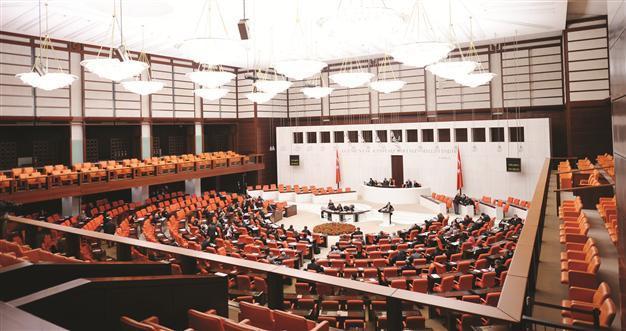Women mark their day with key draft law
ANKARA - Hürriyet Daily News

The law would provide protection for married, divorced, engaged women or those in a relationship. Those affected would be provided with assistance on many issues. DAILY NEWS photo, Selahattin SÖNMEZ
Parliament yesterday began debating a landmark bill to stamp out violence against women, which would introduce tough measures against abusers and provide improved protection for victims.The government aims to have the bill approved in time for International Women’s Day today, and the ruling Justice and Development Party (AKP) was expected to push for its prompt adoption. The session was still under way when the Daily News went to print.
The law would provide protection for all women: married, divorced, engaged or in a relationship, and those affected would be provided with accommodation and receive material, psychological, legal and social assistance.
The bill refers to the Istanbul Convention on the prevention of violence against women and adopts its definition of “domestic violence” to include sexual violence. The state authorities would be able to take children who fall victim to incest away from their families.
In case of life-threatening danger, the person in question could request protection or be automatically granted protection, with two-month daycare for the children of working women. In urgent cases, security force chiefs would be able to make protection decisions or issue restraining orders without a court ruling.
Abused women would also benefit from regulations on the protection of witnesses, under which they would receive assistance to change jobs or move to a new residence. In life-threatening situations, judges could decide on granting the victims new identities and impose secrecy on all their personal information in official records. Judges could also decide on medical treatment for the victims.
The law would allow the authorities to evict the abuser from the shared residence and allocate it entirely to the victim. The abuser would also be banned from carrying weapons, even if he is a public official entitled to do so.
An array of technological means would be employed to enforce the new rulings. The offenders would be tracked with electronic ankle bracelets or wristbands, while the protected women would use devices to alarm the authorities in the form of necklaces or mobile phones. The details would be determined in regulations after the law takes effect.
The offender would face up to six months in jail for breaching restraining orders.
The security forces assigned in this field would receive courses on human rights, children’s rights and gender equality.
The Family and Social Policies Ministry would set up monitoring centers, which would keep data banks of offenders and restraining orders, coordinate the assistance granted to victims, provide them with legal and psycho-social council, and enroll them on vocational courses.
Under the law, classes on gender quality and women’s rights would also be included into the school curriculum, and public and private broadcasters would be required to air monthly programs of at least 90 minutes to raise awareness on the issue.
















